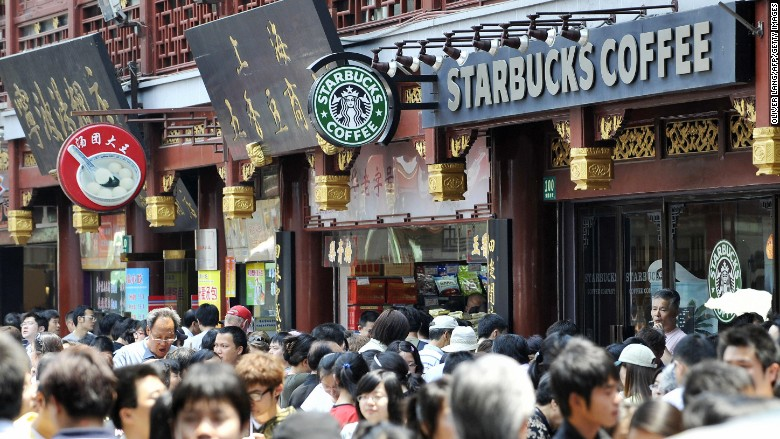RACHEL OAKES WRITES – 2017 marked an important year for Starbucks in China–-but but not in the way the newspapers think.
The Seattle based company has been plotting their move into China since before the start of the 21st century, and since 2012 has over quadrupled their number of store locations, with a new store opening in China every 15 hours. Starbucks “dominates China’s specialist coffee shop sector,” which is recorded as a $3.8 billion dollar industry.
What is especially interesting is that four years ago, China had a primarily tea-drinking culture. The Chinese have grown tea for over 3,000 years, and have since made it their national drink. Starbucks was not coffee’s first introduction in China either; Nestle paved the foundation for coffee marketing in the country with the slogan, “Coffee – A good beginning of a day.” However, according to Nestle’s site, “no one really valued it.” So when Starbucks entered China in 1998, the market for coffee was very small, and so with market research in hand, the company decided to brand coffee as a fashion drink.
Flash forward to today, and Starbucks has over 2,500 stores in China and a 55% market share — further to their goal of over 5,000 operating stores in mainland China by 2021. Clearly, Starbucks has succeeded not only in developing a market for coffee in China, but has dominated it.
Newspapers across the globe have been applauding Starbucks for their growth in China, lauding it as a “lesson to all retailers,” and coining the term “the Starbucks effect.” Starbucks Executive Chairman and founder Howard Schultz has more than hinted that Starbucks is moving away from U.S. markets. “I wouldn’t be surprised if one day we have more stores in China than we do in the U.S.,” the businessman told CNBC. Kevin Johnson, Starbucks CEO, in an interview on China explained, “we’re playing a long game.”
But there is one factor that newspapers, and even Starbucks should pay more attention to– China’s business environment is controlled by a command economy. The top 15 businesses in China are in fact China– the government, that is. “Its government is one part regulator, one part competitor,” states Kenneth Rapoza, a reporter for newspapers such as Forbes and the Wall Street Journal.
Furthermore, the game Starbucks is playing is not a fair one. China is famous for creating barriers for outside competitors like Google (who is not allowed outside of Hong Kong) in favor of Chinese companies like Baidu. Companies who challenge the power or steal the margins from the government are often shut out, like Huawei, since China recently acquired a large stake in Xiaomi.
Patrick Chovanec, chief strategist at Silvercrest Asset Management in New York, states “You go to a country and have to play by their rules and government regulations. But what happens is that China’s rules are often used against you. You have a choice as a business to gauge whether the opportunity is really worth it…but I think as a nation, you have to ask whether or not it is fair that China behaves this way against your companies.”
So long as Starbucks is dumping FDI into Chinese markets, they will have to play by Chinese market rules. Their impressive 55% market share may only be tolerated for a short time. As the coffee giant continues to bet big on China, they must be wary not to upset a competitor that also happens to be a regulator too.

